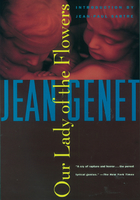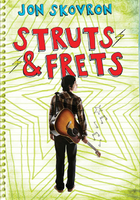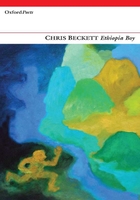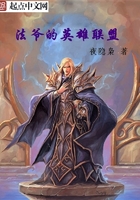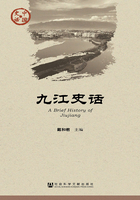The First Time Galip Saw Rüya
PART ONE
Never use epigraphs—they kill the mystery in the work!
—Adli
If that's how it has to die, go ahead and kill it; then kill the false prophets who sold you on the mystery in the first place!
—Bahti
Rüya was lying facedown on the bed, lost to the sweet warm darkness beneath the billowing folds of the blue-checked quilt. The first sounds of a winter morning seeped in from outside: the rumble of a passing car, the clatter of an old bus, the rattle of the copper kettles that the salep maker shared with the pastry cook, the whistle of the parking attendant at the dolmu? stop. A cold leaden light filtered through the dark blue curtains. Languid with sleep, Galip gazed at his wife's head: Rüya's chin was nestling in the down pillow. The wondrous sights playing in her mind gave her an unearthly glow that pulled him toward her even as it suffused him with fear. Memory, Celal had once written in a column, is a garden. Rüya's gardens, Rüya's gardens … Galip thought. Don't think, don't think, it will make you jealous! But as he gazed at his wife's forehead, he still let himself think.
He longed to stroll among the willows, acacias, and sun-drenched climbing roses of the walled garden where Rüya had taken refuge, shutting the doors behind her. But he was indecently afraid of the faces he might find there: Well, hello! So you're a regular here too, are you? It was not the already identified apparitions he most dreaded but the insinuating male shadows he could never have anticipated: Excuse me, brother, when exactly did you run into my wife, or were you introduced? Three years ago at your house, inside a foreign fashion magazine from Alaaddin's shop, at middle school, outside the movie theater where you once sat hand in hand…. No, perhaps Rüya's memories were not so cruelly crowded; perhaps she was at this very moment basking in the one sunny corner in the dark garden of her memories, setting out with Galip in a rowboat…. Six months after Rüya's family moved to Istanbul, Galip and Rüya had both come down with mumps. To speed their recovery, Galip's mother and Rüya's mother, the beautiful Aunt Suzan, would take the children out to the Bosphorus; some days it would be just one mother taking them by the hand and other days it would be both; whatever bus they took, it shuddered as it rolled over the cobblestones, and wherever it took them—Bebek or Tarabya—the high point of the excursion was a tour of the bay in a rowboat. In those days it was microbes people feared and respected, not medicines, and everyone agreed that the pure air of the Bosphorus could cure children of the mumps. The sea was always calm on those mornings, and the rowboat white; it was always the same friendly boatman waiting to greet them. The mothers and aunts would sit at the back of the rowboat, Rüya and Galip side by side at the front, shielded from their mothers' gaze by the rising and falling back of the boatman. As they trailed their feet in the water, they would gaze at their matching legs and the sea swirling around their delicate ankles; the seaweed and seven-colored oil spills, the tiny, almost translucent pebbles, and the scraps of newspaper they strained to read, hoping to spot one of Celal's columns.
The first time Galip saw Rüya, six months before coming down with the mumps, he was sitting on a stool on the dining room table while a barber cut his hair. In those days, there was a tall barber with a Douglas Fairbanks mustache who'd come to the house five days a week to give Grandfather a shave. These were the days when the coffee lines outside Alaaddin's and the Arab's grew longer every day, when the only nylon stockings you could find were the ones on the black market, when the number of '56 Chevrolets in Istanbul grew steadily larger, and Galip pored over the columns that Celal published every weekday on page two of Milliyet under the name Selim Ka?maz, but it was not when he first learned how to read, because it was Grandmother who'd taught him two years before starting school. They'd sit at the far end of the dining table. After Grandmother had hoarsely divulged the greatest mystery of all—how the letters joined up to make words—she would puff on the Bafra she'd seen no reason to remove from the side of her mouth, and as her grandson's eyes watered from the cigarette smoke, the enormous horse in his alphabet book would turn blue and come to life. A was for at, the Turkish word for horse; it was larger even than the bony horses that pulled the carts belonging to the lame water seller and the junk dealer they said was a thief. In those days, Galip would long for a magic potion to pour over the picture of this sprightly alphabet horse, to give it the strength to jump off the page; later on, when they held him back in the first year of primary school and he had to learn how to read and write all over again under the supervision of the very same alphabet horse, he would dismiss this wish as nonsense.
Earlier on, if Grandfather had kept his promise, if he'd brought home that magic potion he said they sold on the streets in vials the color of pomegranates, Galip would have wanted to pour the liquid over the World War One zeppelins, cannons, and muddy corpses littering the dusty pages of his old issues of L'Illustration, not to mention the postcards that Uncle Melih sent from Paris and Fez; he would also have poured it over the picture of the orangutan suckling her baby that Vas?f had cut out of Dünya and the strange human faces he'd clipped out of Celal's newspaper. But by now Grandfather never went outside, not even to go to the barber's; he spent the whole day indoors. Even so, he still dressed every morning, just as he'd done in the days when he went out to the store: wrinkled trousers, cuff links, an old English jacket with wide lapels that was as gray as the stubble that grew on his cheeks on Sundays, and what Father called a silk necktie. Mother refused to call it a necktie—she called it a cravate; coming as she did from a family that had once prided itself on being wealthier than Father's family, she liked to put on Western airs. Later on, she and Father would discuss Grandfather as if he were one of those old unpainted wooden houses that collapsed around them almost daily; as they talked on, forgetting about Grandfather, their voices would grow gradually louder until they turned to Galip: "Go upstairs, why don't you; go find a game to play. Now." "May I take the lift?" "Don't let him take the lift by himself!" "Don't take the lift by yourself!" "Should I go and play with Vas?f, then?" "No, he gets too angry!"
Actually, he didn't get too angry. Vas?f was deaf and dumb, but when I played Secret Passage, he knew I wasn't making fun of him; when I got on all fours and headed for the far end of the cave I knew to be lurking in the shadowy outer reaches of the apartment, taking cover under beds as I ventured forward—as stealthy as a cat, as furtive as a soldier creeping though the tunnel that will lead him into enemy trenches—he understood me perfectly, but apart from Rüya, who wasn't there yet, no one else in the house knew this. Sometimes Vas?f and I would stand together at the window for ages and ages, watching the streetcar line. The world we could see from the bay window of our concrete apartment reached as far as a mosque in one direction and, in the other, as far as a girl's lycée; between them stood a police station, an enormous chestnut tree, a street corner, and Alaaddin's bustling shop. Sometimes, when we were watching the people going in and out of the shop and idly drawing each other's attention to passing cars, Vas?f would suddenly let out a hoarse and terrifying cry, the cry of a boy who is battling with the devil in his dreams; if he caught me unawares, I'd be truly frightened. This would provoke a response from the two chimneys puffing behind us. Leaning forward in his low armchair, Grandfather would try in vain to distract Grandmother from the radio. "Vas?f has scared Galip out of his wits again," he'd murmur, and then, more out of habit than curiosity, he'd turn to us and ask, "So let's see now, how many cars have you spotted so far?" But no matter what I told them about the Dodges, Packards, DeSotos, and new Chevrolets I had counted, they didn't hear a thing I said.
Although the radio was on from the first thing in the morning till the last thing at night, the thick-coated and not-at-all-Turkish-looking china dog curled up on top of it never woke from his peaceful slumber. As alaturka music gave way to alafranga—Western—music and the news faded into commercials for banks, colognes, and the national lottery, Grandmother and Grandfather kept up a steady patter. Mostly they complained about the cigarettes in their hands, but as wearily as if they'd been suffering from a toothache so long they'd accustomed themselves to the pain. They would blame each other for failing to kick the habit, and if one went into a serious coughing fit, the other would proclaim, first triumphantly and then fretfully, peevishly, that the accusations were true! But not long afterward, the needling would resume. "So I'm smoking a cigarette—stop nagging!" Then there'd be a mention of something one of them had read in the paper. "Apparently, cigarettes help calm your nerves." A silence might follow but, with the clock ticking away on the wall in the corridor, it never lasted long. Even as they took up their papers again and began leafing through them, even as they played bezique in the afternoons, they kept on talking, and when the family came together for the evening meal, they'd utter the same words they did when it came time for everyone to gather around the radio, or when they'd both finished reading Celal's column. "If only they'd let him sign his real name," Grandfather would say, "maybe he'd come to his senses." Grandmother would sigh—"And a grown man too"—and then, her face screwed up with worry as if she were asking this question for the very first time, she'd say, "Is it because they won't let him sign his columns that he writes so badly, or is it because he writes so badly that they won't give him permission to write under his own name?" "If nothing else," Grandfather would say, grasping for the consolation that had soothed both of them from time to time, "it's because they haven't let him sign his columns that so few people know how much he's disgraced us." "No, no one knows," Grandmother would say then, but in such a way that Galip knew she didn't mean it. "Who would know that we were the ones he's been writing about in the newspaper?"
Later on, when Celal was receiving hundreds of letters from his readers every week and began to republish his old columns under his own illustrious name—some claimed this was because his imagination had dried up and some thought it was because women or politics took up all his time, while others were sure it was out of simple laziness—Grandfather would repeat a line he'd recited hundreds of times already, in a bored and slightly affected voice that made him sound like a second-rate actor, "For the love of God, can there be anyone in this city who does not know that the apartment he mentions in that column is the one in which we sit?" At that, Grandmother would fall silent.
Then Grandfather would begin to speak of the dreams that would visit him so often as time wore on. His eyes would light up, just as they did when he told one of those stories they repeated to each other all day long. He'd been dreaming in blue, he'd say: the rain in his dream was the deepest blue, midnight blue, and it was this never-ending blue rain that made his hair and his beard grow ever longer. After listening patiently, Grandmother would say, "The barber's coming very soon," but Grandfather frowned whenever the barber was mentioned. "He talks too much, he asks too many questions!" After they were done with the blue dream and the barber, there were one or two occasions when Galip heard Grandfather whisper under his breath, "We should have built another building, far away from here. This apartment has brought us bad luck."
Years later, after they'd sold off the City-of-Hearts Apartments one by one, and the building, like so many others in the area, was colonized by small clothing manufacturers, insurance offices, and gynecologists who did abortions on the sly, Galip would pause on his way to Alaaddin's shop to look up at the mean and grimy facade of the building that had once been his home and wonder what could have prompted Grandfather to make such a dark pronouncement. It had something to do with his Uncle Melih, who had gone off to Europe only to settle in Africa and who, after returning to Turkey, had lingered in Izmir for many years before returning to the apartment in Istanbul. Whenever the barber asked after him—So, when's that eldest son of yours returning from Africa?—Grandfather would bridle; seeing his reluctance to discuss the matter, Galip was aware even then that Grandfather's "bad luck" had begun when his oldest and strangest son had gone abroad, leaving his wife and their son Vas?f behind, only to return years later with a new wife and a new daughter (Rüya, which was also the Turkish word for dream).
As Celal told Galip many years later, Uncle Melih was still in Istanbul—and not yet thirty—when they'd started building the apartments. Every afternoon, he would leave the law offices (where he did little other than quarrel or sketch ships and desert islands on the backs of old legal dossiers) to join his father and his brothers at the construction site in Ni?anta??. The workmen would be slacking off as the end of the workday approached; much to their annoyance, Uncle Melih would take off his jacket, roll up his sleeves, and set to work. The family owned two concerns at the time: the White Pharmacy in Karak?y and a candy shop in Sirkeci that later became a patisserie and then a restaurant. They couldn't compete with Hac? Bekir, whose lokums were said to be the best in the city, though they were more optimistic about the small jars of Grandmother's quince, fig, and cherry jam lining the shelves on the walls. But it was around this time that Uncle Melih began to talk about going to France or Germany: He wanted to learn how to make European-style confitures; he would find out where to buy gilt paper for wrapping candied chestnuts; he would see if they could go into partnership with the French and set up a factory that made colored bubble bath—it might be an idea to visit the factories that were shutting down one after the other all over America and Europe around this time, to buy up some of their machinery—and perhaps he could also find a cut-rate grand piano for Aunt Hale; above all, he wanted to take poor deaf Vas?f to a good ear specialist, a neurologist who knew what he was talking about.
Two years later, Uncle Melih and Vas?f set off for Marseilles on a Romanian ship, the Tristana; Galip knew it only from a photograph he'd found when going through Grandmother's boxes. The photograph smelled of rose water; the ship itself (as Celal would discover when he went through Vas?f's newspaper clippings) sank after running into a free-floating mine in the Black Sea. The apartment house was finished by the time Uncle Melih and Vas?f set off for Europe, but no one had yet moved in. A year later, Vas?f returned alone by train, still deaf and dumb, naturally (as Aunt Hale would say any time the subject came up, though Galip never quite understood what her strange emphasis was meant to imply); when he pulled into Sirkeci Station, Vas?f was clutching an aquarium on his lap, fully stocked with the Japanese fish whose great-great-great-great-grandchildren would still be bringing him pleasure fifty years later. From the very beginning, he refused to be parted from them; he spent hours on end staring at the fish, sometimes breathless with excitement and other times tearful and despairing.
By the time Vas?f returned, Celal and his mother were living on the third floor (which would later be sold to an Armenian), but to allow Uncle Melih to continue his business investigations of the Paris streets, he needed money, so they rented out the third-floor apartment and moved up to the small sloping attic that had once served as a storeroom; half of it was later turned into a small apartment. Uncle Melih continued to send letters from Paris stuffed with recipes for pastries and confitures, formulas for soap and cologne, and pictures of the actors and ballerinas who ate and used these products. There were also packages containing mint toothpaste, marron glacé samples, liqueur chocolates, toy firemen, and sailor's caps. With time, though, the letters and packages became less frequent and Celal's mother began to wonder if she and Celal should return to her father's house. But it wasn't until the war broke out and Uncle Melih had sent them the strangest postcard of a mosque and an airplane from Binghazi that she and Celal returned to the wooden house in Aksaray to join her mother and her father, a petty official in one of the charitable foundations. On the back of his brown-and-white postcard, Uncle Melih had written that all routes back to Turkey had been mined.
The war was long over when he sent another postcard, this one black and white, from Fez. This was how Grandmother and Grandfather discovered that Uncle Melih had married a Turkish girl in Marrakesh. His bride had a bloodline she could trace all the way back to the Prophet Muhammed and was therefore a seyyide—a princess—and a very beautiful woman. On the postcard was a hand-painted picture of a colonial hotel that looked like a cream cake and had appeared in a Hollywood film about an arms dealer and a spy who had fallen in love with the same bar girl. (Years later, long after he had worked out the nationalities of the flags waving on the hotel's second floor, Galip happened to be looking at this postcard one day when, falling into the style Celal used in his "Gangsters of Beyo?lu" stories, he decided it must have been in one of these rooms that the "first seeds of Rüya were sown.")
Six months after the Fez postcard arrived, a card arrived from Izmir, but no one believed it was Uncle Melih who had sent it, because by then they'd decided he was never coming back; there were even rumors that he and his new wife had converted to Christianity, joined a group of missionaries bound for Kenya, and built a church for a sect that sought to merge the Crescent with the Cross in a valley where lions hunted three-antlered deer. Then there was the gossip who claimed to know the bride's Izmir relatives; according to this person, Uncle Melih had spent the war in South Africa, smuggling arms and engaging in various other dark ventures, like bribing a king; though he had been well on his way to becoming a millionaire, he had allowed himself to be ruled by his whimsical wife, whose beauty was legendary; the couple planned to go to Hollywood to make her world famous, and already her picture was appearing in Arab-French magazines. But the postcard that the family passed from floor to floor for weeks on end—scratching it suspiciously, as if they suspected it of being counterfeit—merely stated that Uncle Melih and his wife had decided to return to Turkey because they missed their country so much they'd fallen ill. "Now" they were well, he said; he was working for his father-in-law, who was in tobacco and figs and keen for Uncle Melih to help him develop new products. But not long afterward yet another postcard arrived, which every floor interpreted in its own way. Although everyone claimed it to be garbled and almost impossible to decipher, this may have had something to do with the property disputes that would soon drag the entire family into silent warfare; years later, when Galip examined the same postcard, he did not find the language unduly confusing. All Uncle Melih said was that he wished to return to Istanbul, he had a daughter, and had not yet decided what to name her.
Grandmother displayed Uncle Melih's postcards along the edges of the enormous mirror in the buffet where she kept the liqueurs; there were so many that they seemed to form a second frame. It was in one of these postcards that Galip first read Rüya's name. Among the views of churches, bridges, seascapes, towers, ships, mosques, deserts, pyramids, hotels, parks, and animals that Grandfather so resented were snapshots of Rüya as an infant and a young child. But in those days, he was less interested in his uncle's daughter (or his cousin, as people were just beginning to say) than he was in his Aunt Suzan, who gazed so mournfully at the camera as she parted the mosquito net to reveal the ghostly black-and-white cave where Rüya slept. As Rüya's baby pictures made their way around the apartments, it was the mother's beauty that made everyone—man and woman alike—stop and stare in silence, but Galip would not understand why until much later. At the time the question on everyone's lips was when Uncle Melih and his new family might be coming to Istanbul and which floor they would take when they arrived. By now, Celal's mother—she had married a lawyer, only to die young of a disease for which each doctor had another name—no longer able to bear the spider-filled house in Aksaray, had finally accepted Grandmother's insistent invitation to return with Celal to the attic apartment, where Celal began his pseudonymous newspaper career: investigations into match-fixing; exaggerated accounts of thrilling and artfully executed murders in the bars, nightclubs, and brothels of Beyo?lu's back streets; crossword puzzles in which the black squares always outnumbered the white; a serial on wrestlers (which he took over after the original author became addicted to opiated wine); various articles with titles like DISCOVER YOUR CHARACTER IN YOUR HANDWRITING, READ YOUR CHARACTER IN YOUR FACE, LET US INTERPRET YOUR DREAMS, and YOUR HOROSCOPE TODAY (according to friends and relatives, it was in his horoscopes that he first started sending secret greetings to his lovers); he also did a BELIEVE IT OR NOT column and spent his spare time watching the latest American films for free and then reviewing them; impressed by his industry, people had even begun saying that he was doing journalism to build up his savings so he could take a wife.
Long afterward, when he was watching the cobblestones along the streetcar line disappear under a layer of asphalt for which he could see no reason, Galip asked himself if Grandfather's strange misgivings about the apartment building came from his feeling out of place or if it all went back to the day the home he'd built for his family was suddenly too small to contain it. When Uncle Melih turned up one spring evening with his beautiful wife, his enchanting daughter, and a fleet of trunks and suitcases, he moved straight into Celal's attic apartment, of course. Perhaps he did this to spite his family for failing to take him at his word.
The next morning Galip overslept. In his dream he was sitting next to a mysterious blue-haired girl on a city bus that seemed to be taking them far away from the school where he should have been reading the last page of the alphabet book. He awoke to discover that he really was late for school and his father was late for work as well. Mother and Father were eating breakfast, discussing the goings-on in the attic apartment in the same tones they used for the mice that ran between the walls of the apartment and that their maid Esma Han?m reserved for specters and djinns; what he remembered best afterward was the sun pouring through the window and the blue-and-white checked tablecloth that reminded him of a checkerboard. Galip did not want to think about why he was late for school, nor did he want to think about why the prospect of going to school late filled him with dread: for much the same reason, he did not want to know who had moved into the attic apartment. So instead he went upstairs to listen to Grandmother and Grandfather saying the same things to each other over and over, only to find the barber quizzing a rather glum-looking Grandfather about the new arrivals in the attic. The postcards had been taken out of the buffet mirror and were now strewn all over, and everywhere were new and strange objects; there was also a mysterious new smell to which he would later become addicted. It left him feeling empty, fearful, bereft: What were they like, what were they really like, these half-colored countries he'd only seen on postcards? What of the beautiful aunt in those photographs? He wanted to grow up, become a man! When he said he wanted to have his hair cut, Grandmother was very pleased, but like so many people who talk too much, the barber did not pause to consider Galip's feelings. Instead of letting him take Grandfather's armchair, he made him sit on a stool on top of the dining table. The blue-and-white cloth he draped over Grandfather was much too big, but that did not stop the barber from tying it around Galip's neck so tight he almost strangled him, and as if that weren't enough the cloth went all the way down to his knees like a girl's skirt.
Many years later, and long after they married (by Galip's calculations, their wedding day came exactly nineteen years, nineteen months, and nineteen days after their first meeting), there were mornings when Galip woke up to see his wife sleeping next to him, her head buried in her pillow, and he would wonder if the blue in the quilt made him uneasy because it reminded him of the blue in the cloth the barber had taken off his grandfather and draped around him, but he never said a word about this to his wife; he knew she would never agree to change the quilt cover for such a whimsical reason.
Galip was sure they would have pushed the newspaper under the door by now; he rose from bed with his usual care, making no more noise than a feather. His feet did not take him to the door but to the bathroom and the kitchen. The teakettle was not in the kitchen but he did find the teapot in the sitting room. Judging by the number of cigarette ends in the overflowing copper ashtray, Rüya must have been sitting here until the early hours of the morning, perhaps reading a new detective novel, perhaps not. He found the teakettle in the bathroom. That terrifying contraption the chauffe-bain, was no longer working—the water pressure was too low—but rather than buy a new one they'd fallen into the habit of heating water in the teakettle instead. Sometimes they'd do this just before making love, waiting meekly for the water to come to a boil, just as Grandfather had once done with Grandmother, and Father with Mother.
But once, when Grandfather had asked Grandmother to put out her cigarette, and Grandmother had lost her temper and accused him of ingratitude, she reminded him that there had not been a single morning during their marriage when she had risen from bed later than he had. Vas?f was watching them; Galip was listening and trying to figure out what she was trying to say. Later on, Celal would touch on this subject in his columns, but not to convey what Grandmother had intended. To rise before the sun is in the sky, he wrote, to get out of bed when it's still pitch dark—only a peasant would think to live this way, and the same can be said of women who feel they must rise before their husbands. These were the concluding remarks in a column that also described Galip's grandparents' other unbecoming household habits (how they dropped their cigarette ashes on the quilt and kept their false teeth in the same glass as their toothbrushes; the way their eyes raced over the death announcements); he presented all this to his readers without adornment. After she had read it, Grandmother said, "So it seems we're peasants!" Whereupon Grandfather had replied, "I'm sorry we never made him eat lentil soup for breakfast. That would have taught him what it means to be a peasant!"
As Galip went through his usual routines—rinsing the teacups, searching for clean knives and forks, retrieving white cheese and olives that looked like plastic food from a refrigerator that stank of past?rma, and heating up water in the teakettle so that he could shave—he felt the urge to make a noise that might wake up Rüya, but the noise never happened.When he sat down at the table to drink his weak tea and eat unpitted olives and yesterday's bread, he turned his attention to the newspaper he had retrieved from the doormat and spread out next to his plate, and while his eyes wafted over its sleepy words—the ink was so fresh he could smell it—his mind traveled elsewhere. This evening they'd go to see Celal, or perhaps there was something good showing at the Palace Theater. He glanced at Celal's column and decided to read it later, when they got back from the movies, but his eyes refused to obey and went straight to the first line of the column; he rose, leaving his newspaper open on the table, put on his coat, and went out the door, only to walk right back in. Digging his hands into the tobacco, loose change, and used tickets that lined his pockets, he spent a few moments paying silent tribute to his lovely wife. Then he turned around, shut the door softly behind him, and left the house.
The newly wiped stairs smelled of damp, dust, and dirt. The air outside was cold and thick with the black soot coming from the coal- and oil-burning chimneys of Ni?anta??. Puffing out great clouds of frozen breath, picking his way through the piles of litter on the pavement, he joined the long line at the dolmu? stop, from which shared taxis set out to all the most popular destinations in the city.
On the pavement opposite stood an old man who'd turned up the collar of his jacket to make it more like a coat; he was going through the pastry seller's wares, separating out the cheese pastries from the ones stuffed with meat. All of a sudden, Galip left the line, running back to the corner where the newspaper seller kept his stand in a well-sheltered doorway; after he'd paid for his new copy of Milliyet, he folded it and tucked it under his arm. He remembered Celal mimicking one of his matronly readers: "Oh, Celal Bey, Muharrem and I love your columns so much that some days we can't bear the wait and buy two copies of Milliyet in one day!" Then all three of them—Galip, Rüya, and Celal—would laugh. Much later, after a smattering of rain had turned into a real downpour and he'd fought his way into a dolmu? that stank of wet clothes and cigarettes, after it had become clear that no one in the car was in the mood to strike up a conversation and he had entertained himself as only a newspaper addict can, by folding up his newspaper into smaller and smaller segments until all he could see was the column on page two, after he had spent a few last moments gazing absently through the window, Galip began to read Celal's latest column.

